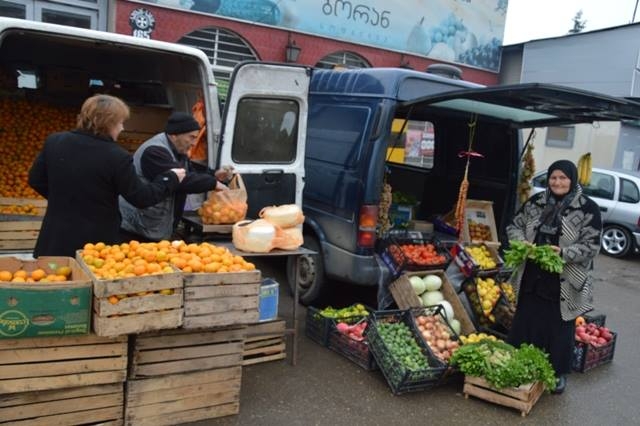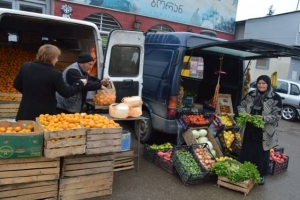Human Development Report '15: Georgia Progresses
Georgia has improved its score in human rights development, the ‘Work for Human Development’ by the United Nations Development Programme (UNDP) found.
The Human Development report, published on the 14th of December by UNDP, examines the intrinsic relationship between work and human development.
According to the report, developing countries of Europe and Central Asia are showing a steady progress in their human development levels. Together with Latin America and the Caribbean, the region has the highest Human Development Index (HDI) among all developing regions. Nevertheless, complex challenges – including globalization, demographic changes, large migration flows, fast technological progress and environmental degradation - may increase inequalities and reverse recent development achievements.
Georgia scores 76 out of 188 countries and territories with a 0.754 HDI value for 2014. Between 2000 and 2014, Georgia’s HDI value increased from 0.672 to 0.754, an increase of 12.2 percent or an average annual increase of about 0.83 percent. Bosnia and Herzegovina and Armenia follow Georgia closely in their 2014 HDI rank, with HDIs ranked 85 and 85 respectively. Moreover, between 2000 and 2014 Georgia, Ukraine and Kazakhstan experienced different degrees of progress toward increasing their HDIs.
The report encourages governments to look beyond the formal sector and to consider the alternative work —such as unpaid care, voluntary or creative work – which also improve the well-being of people and societies.
“The developing countries of Europe and Central Asia have maintained comparatively low levels of inequalities, including when it comes to gender. But decent work needs to play a central role in furthering development efforts”, Cihan Sultanoglu, Assistant Administrator and Director of UNDP’s Regional Bureau for Europe and the CIS said. “Countries can now build on their success if they focus more on education and skills, participation and social protection”, she added.
Together, Europe and Central Asia have a 51 percent employment to population ratio, the second lowest among developing regions after Arab States. Meanwhile, youth unemployment stands at 19.5 percent and in some countries in the region it is even more acute. The region also accounts for large numbers of migrants and other informal workers who do not benefit from any type of social safety net.
The most recent survey data that were publically available for Georgia’s Multidimensional Poverty Index (MPI) estimation refer to 2005. In Georgia 2.2 percent of the population (0,099 thousand people) are multidimensional poor while an additional 4.1 percent live near multidimensional poverty (0,186 thousand people).
The breadth of deprivation (intensity) in Georgia, which is the average of deprivation scores experienced by people in multidimensional poverty, is 37.6 percent. The MPI, which is the share of the population that is multidimensionally poor, adjusted by the intensity of the deprivations, is 0.008. Bosnia and Herzegovina and Armenia have MPIs of 0.006 and 0.002 respectively
The report highlights a widening skills gap and shows there is a mismatch in the region between actual skills and those required by a globalized economy. While countries in the region have the highest percentage of tertiary school age population among developing regions, moving towards environmental sustainability and energy efficiency demands new skills, technologies and standards.
“We are moving towards an increasingly polarized world of work. There has never been a better time to be a highly skilled worker and a worse time to be unskilled. Unless action is taken, many people, particularly those already marginalized, might be left behind,” said Selim Jahan, Director of the Human Development Report Office and lead author of the report.












